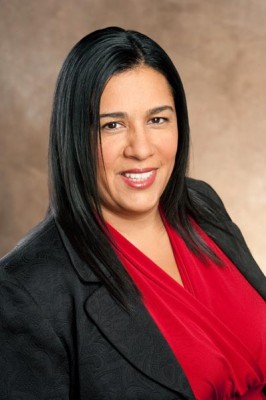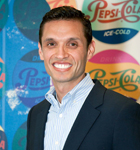When Marcela Bailey began her career at Sony Pictures Entertainment in 1991, she was hired as an entry-level accounting clerk. Today she is the divisional chief information officer for Sony Pictures Home Entertainment, a position she’s held since 2009.
Her career path was not typical: she entered the information technology side of the company in 1999 as a business analyst after spending years in the customer service and sales realms. With each job she held in the company, Bailey explored the technical side of her position, searching for ways to make her job and organization more efficient, effective, and error free.

What is a typical week like for you?
A typical week is working closely with our Home Entertainment executives and identifying what direction they’re taking, what they need from a technology perspective, and establishing short-term and long-term objectives that then provide direction for the IT group. The other part is working very closely with our vendor partners that support our initiatives—staying up-to-date with what’s new, latest, and greatest on the technology front, the mobility front, cloud, as well as other tools that may help support the home entertainment division either now or in the future.
You began your career with Sony Pictures Entertainment on the business side.
How did you become interested in IT?
I was always inquisitive about how things work. I sat next to one of the people who built one of our ERP (enterprise resource planning) systems back in the early ’90s and I always knew what I wanted the results to be and looked over his shoulder for quite a bit … directing him on what the business needed. I started coming up with my own ways of creating efficiencies for the work I was responsible for. In 1997 I graduated from the University of Southern California with a master’s [degree] in information systems and operations management and I got more formal training. My exposure and experience with our IT group and the academic perspective solidified that this was an area that I wanted to go into.
 What advice would you give to someone looking to succeed in the IT field?
What advice would you give to someone looking to succeed in the IT field?
You have to pave your own path. The key thing is not just asking for promotion, but really demonstrating the value that you bring and taking on more responsibilities that others may not want to take on. IT is a service entity and I think there’s a lot of respect that we get by bringing new ideas to the table and identifying ways to run the organization more efficiently and effectively versus waiting for someone to ask for a project.
What do you think can be done to increase the number of women in the IT field?
More women have to get more involved in science and math from an educational base training. Also doing the crossover from a finance or operations role and transitioning into a business analyst IT role is another possibility. I think that down the line there will be a lot more women, it’s just going to take time and getting more women in senior positions will help.
How did your participation in the National Hispana Leadership Institute in 2010 help you in your career?
I think where it’s really helped me is having the support network of women that have held different leadership positions across different sectors. Sharing some of my challenges with them and seeing that I’m not alone and getting advice on how they’ve handled certain situations has been immense.
You’re on the board of the California Hispanic Corporate Council Leadership Institute (CHCCLI). What notable work have you done with that group?
As a member of the board, and executive sponsor of Sony Pictures Entertainment’s Latinos Unidos employee resource group, I thought it would be great to get together all the Latino or Hispanic employee resource groups in Los Angeles and Orange County and have CHCCLI lead a discussion among various corporations and their corresponding employee resource groups and come up with best practices. [The goal was to] try to strengthen [the attendees’] respective organizations by sharing what other companies are doing effectively. As a Latina, it’s really one of the things I’m very passionate about—developing a Latino pipeline and mentoring within a company.

